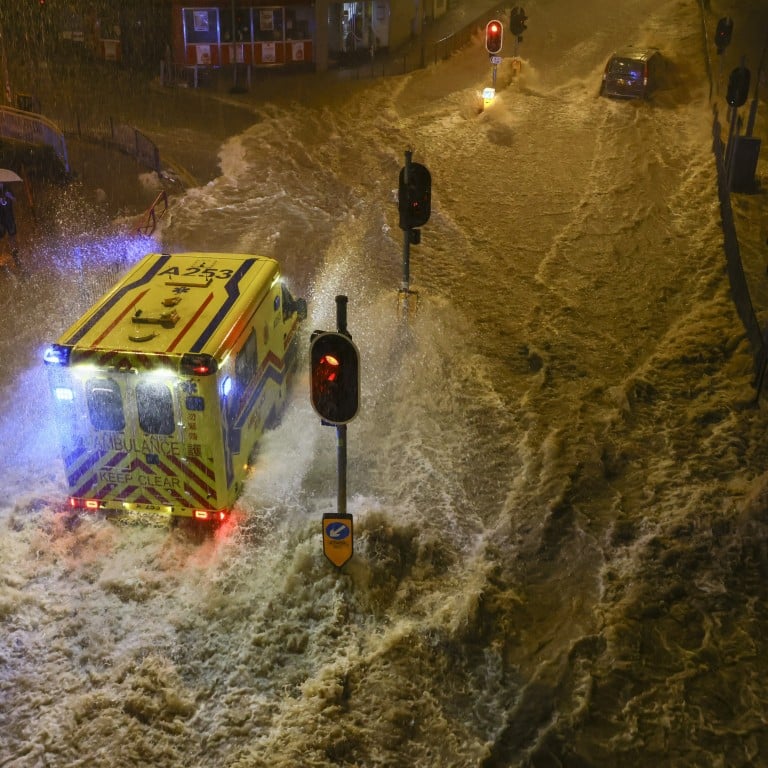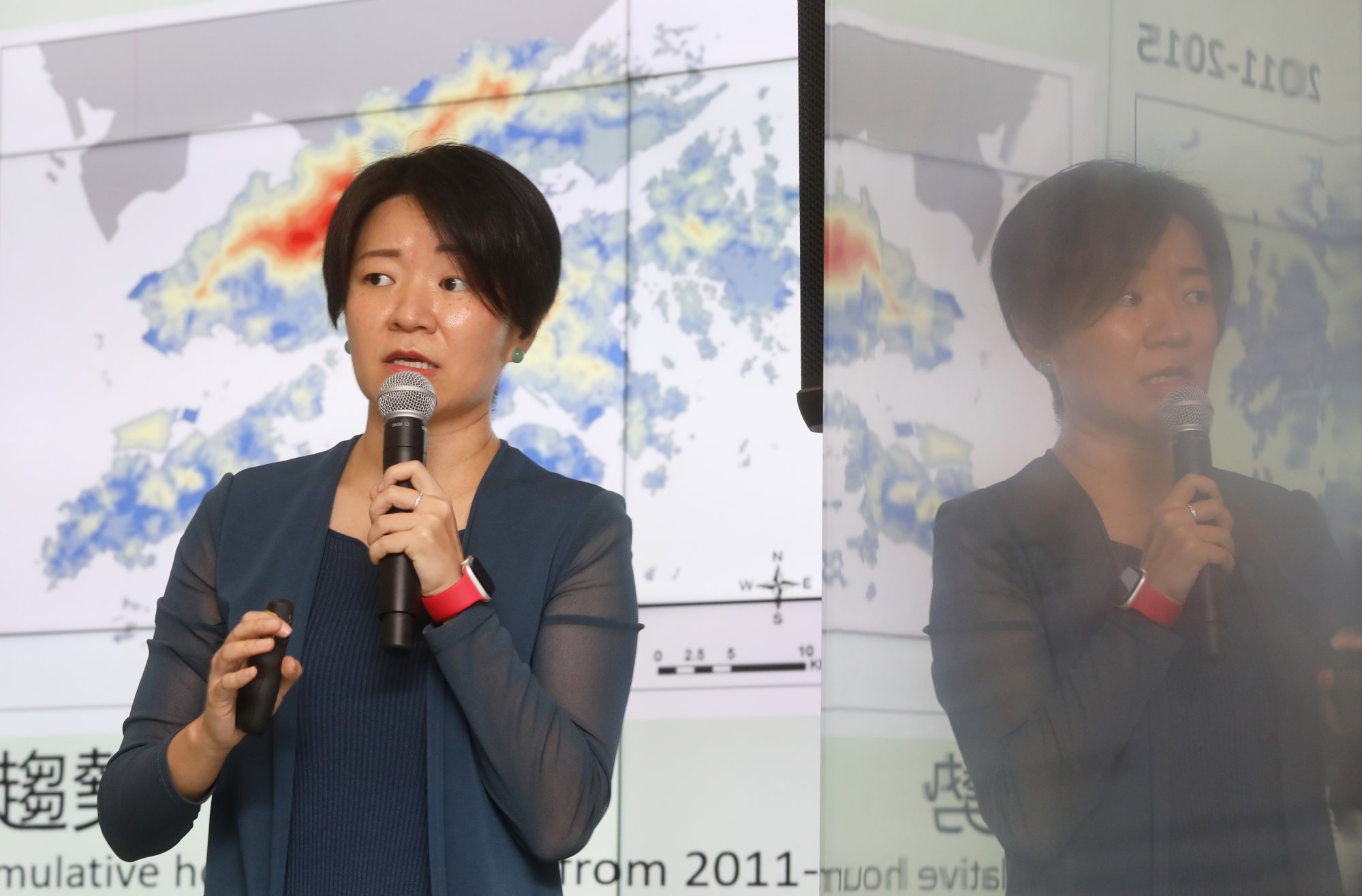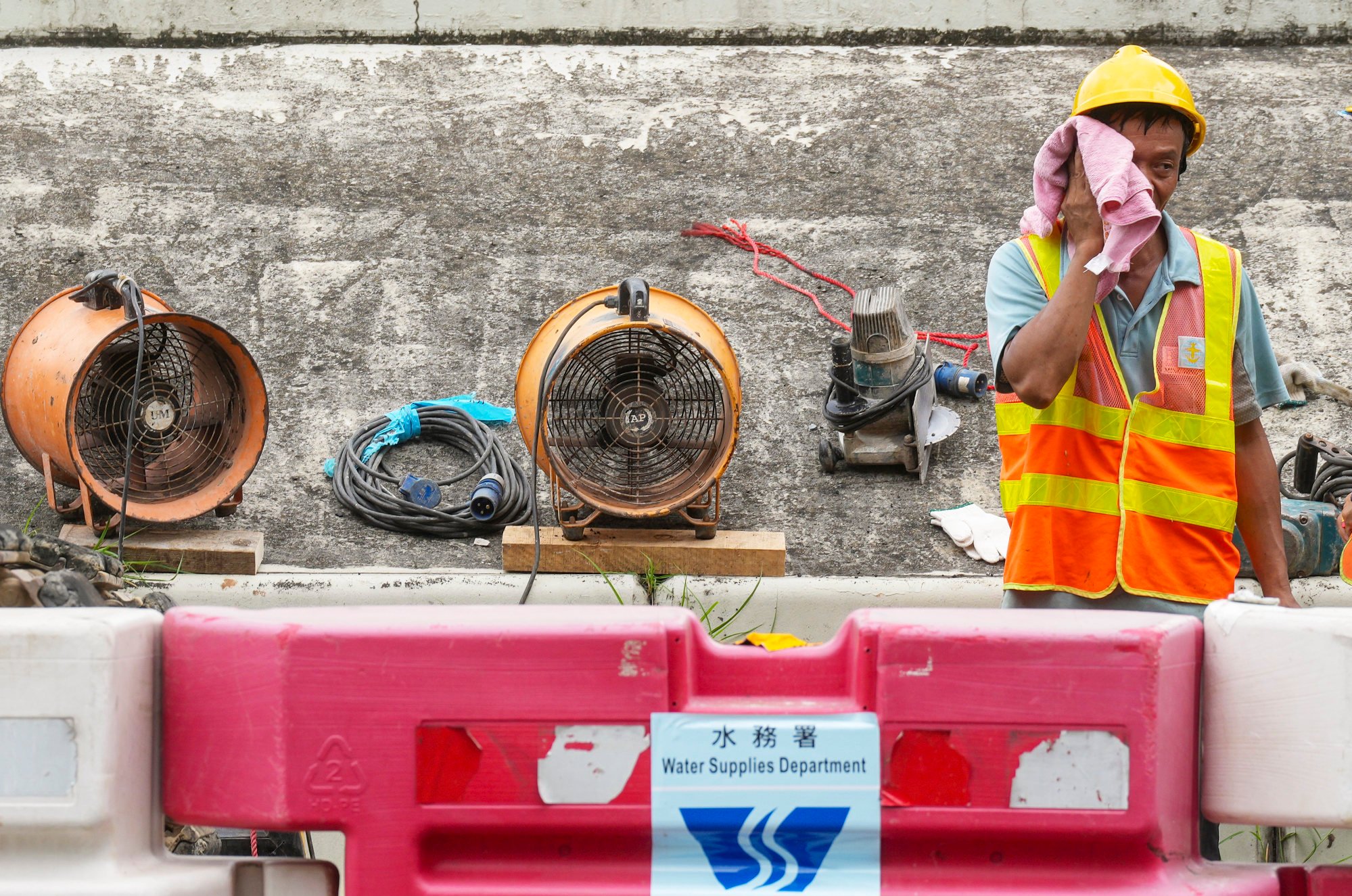
Hong Kong academics warn hot nights to increase by 50%, this year’s record rainfall will be outstripped and call for coordinated response
- Extreme weather will become more common, with rainfall of 230mm in an hour possible and 50 per cent more very hot nights, researchers say
- Academics say multi-departmental team needed to deal effectively with future crises caused by weather
Academics have appealed to the Hong Kong government to set up an interdepartmental task force to tackle future extreme weather as they predicted that rainfall would outstrip the record set this year and that the number of hot nights would increase by 50 per cent by 2040.
The suggestion, unveiled on Monday alongside a list of recommendations, said the government had to develop a “proactive approach” to extreme weather, including “effective coordination” between its departments over forecasts and response implementation.
“The more important thing is whether or not the government has a cross-bureau action group to make sure that the plans are coordinated,” Edward Ng Yan-yung, an architecture professor at the Chinese University of Hong Kong, who led the research project, said.
“Any one of the bureaus [alone] will not solve the problem,” he added.

The findings were unveiled by Chinese University’s school of architecture in collaboration with Hong Kong University (HKU) and the Hong Kong University of Science and Technology (HKUST).
Researchers found the 10-year average of hot nights – a temperature that does not drop below 28 degrees Celsius (82.4 degrees Fahrenheit) – will increase to 48 days between 2040 and 2049, up from the 2011-2020 average of 32 days.
Members of the team warned that sustained high temperatures would put increased pressure on medical services.
“In prolonged extreme heat, the elderly and individuals with chronic illnesses are more susceptible to heatstroke and cardiovascular disease, leading to increased demand for ambulances and accident and emergency services,” Dr Chao Ren, an associate professor in HKU’s the faculty of architecture, said.
“The government should consider the varying degrees of heatwave impact in different districts to effectively allocate medical resources and enhance community services.”
132 Hongkongers sent to hospitals, all rainstorm alerts cancelled after deluge
Ng said a new task force should draw up a set of cross-department protocols designed to cope with extreme weather and to use future statistics provided by the Hong Kong Observatory as the basis for an action plan.
The predictions said the longest duration of consecutive hot nights would increase to an average of 10 days a year compared to past decade’s average of eight days, and that the record for highest hourly rainfall could be more than 230mm (nine inches), which would “significantly” increase the likelihood of floods and landslides.

The present record 158mm of rain in an hour was set during what the government called a “once-in-500-year” black rainstorm in September.
“The intensity of rain is going to increase tremendously,” Jimmy Fung Chi-hung, chair professor of the department of mathematics and the division of environment and sustainability at HKUST, said.
The group added the government should improve its heat shelter system, with increased numbers and in more locations, prepare for an increase in demand for medical services during heatwaves and adjust urban planning to take account of the potential for extreme weather.
Soaring Hong Kong temperatures turn up heat on need to find climate unity
Hong Kong has been affected by a string of climate change-linked weather problems in the past year.
This summer was the hottest since records began in 1884, with average temperatures of 29.7 degrees Celsius in August.
The autumn brought a number of devastating typhoons and rainstorms.
The worst was the record-breaking 16-hour black rainstorm that caused widespread flooding and landslides and injured dozens of people.
Chief Executive John Lee Ka-chiu said in last month’s policy address that the government would adopt a “more pre-emptive and strategic” approach to dealing with extreme weather.
He added officials were exploring the use of big data and artificial intelligence to boost emergency preparedness for future extreme weather events.

